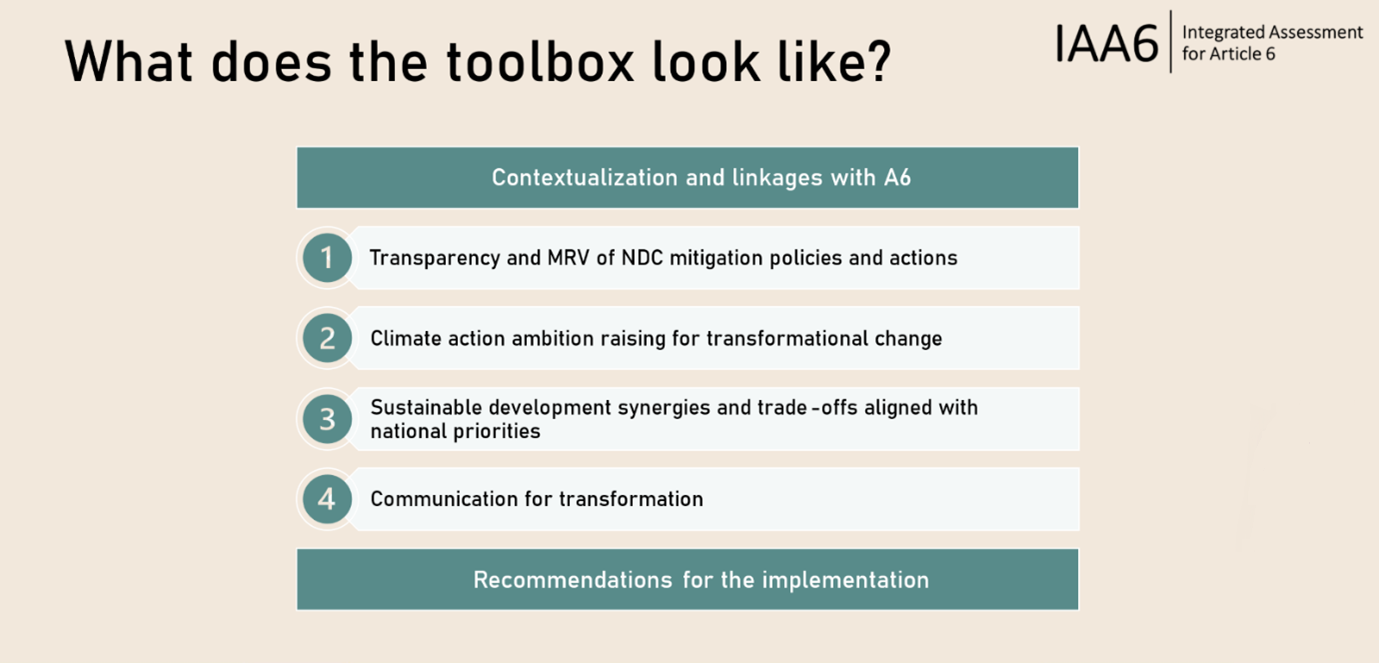International carbon markets could facilitate more ambitious climate action.
However, to ensure that it works for planet and people, countries require technical capacities to create comprehensive strategies for implementing Article 6 of the Paris Agreement.
The Integrated Assessment for Article 6 (IAA6) project collaborates with Peru, Sri Lanka, and Tanzania. Launched at COP28, these partnerships, aim to enhance capacities and co-develop a carbon market toolbox, offering practical tools for countries considering emissions trading under the Paris Agreement.
The solutions developed and refined as part of this project can be adapted to various other contexts, allowing for knowledge sharing and replication in further countries.
South-South Collaboration for Article 6 Implementation
Carbon markets can drive more ambitious climate action via cost-savings and efficient allocation of financial resources. Yet, maintaining environmental integrity and fair benefit sharing is essential.
The IAA6 project brings together experts from the UNEP Copenhagen Climate Centre (UNEP-CCC) and experts from the Global South to develop approaches for holistic Article 6 strategies and provide in-depth implementation support. Building on a range of experiences, especially from Costa Rica, the initiative utilizes a South-South learning approach, sharing knowledge both regionally and globally.
A total of 24 countries expressed interest in participating in the project, showcasing the need for the kind of support facilitated by IAA6. Peru, Sri Lanka, and Tanzania, represent a diverse set of countries, which helps ensure the applicability to a wide range of different contexts.
Supporting Various Stages of Article 6 Readiness
At a side event in the EU Pavilion at COP28, the two implementing partners, RAND Corporation and Centro Para la Sostenibilidad Urbana (CPSU), presented an overview of the Article 6 toolbox components.
The next step is to co-develop work plans with Peru, Tanzania, and Sri Lanka to integrate their support requirements into building the toolbox. The components will be tailored to country needs in a dynamic and iterative process.
Each country is at a different stage of using carbon markets under Article 6, which can increase the applicability of the toolbox to wide range of other countries.
Sri Lanka is in the process of developing a regulatory framework for Article 6. IAA6 will support its robustness and alignment with country priorities while co-developing pathways for sectoral decarbonization.
Tanzania aims to utilize Article 6 to attract finance for implementation of their national climate strategy. Confronted with a lot of interest from project developers, the country needs to build further capacities and structures to safeguard achievement of national priorities and equitable sharing of benefits.
Peru already has a broad carbon market framework but wants to develop more concrete guidance on which technologies and emission reductions should be made eligible for Article 6 and which are required for achieving Nationally Determined Contributions.
The toolbox is expected to be publicly available towards the end of 2024 on the UNEP-CCC website.
The project team welcomes all countries that are interested in applying any of the toolbox modules to keep in touch. Updates with guidance for using the tools will be shared regularly and additional funding opportunities for in-depth implementation support can be explored.
The IAA6 project is funded by the European Commission’s Directorate-General for Climate Action (DG CLIMA).



